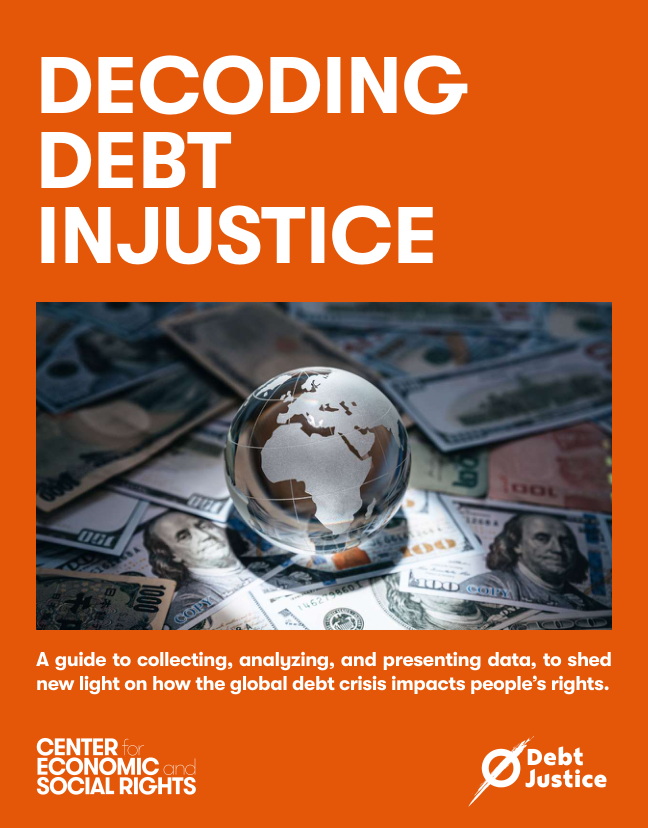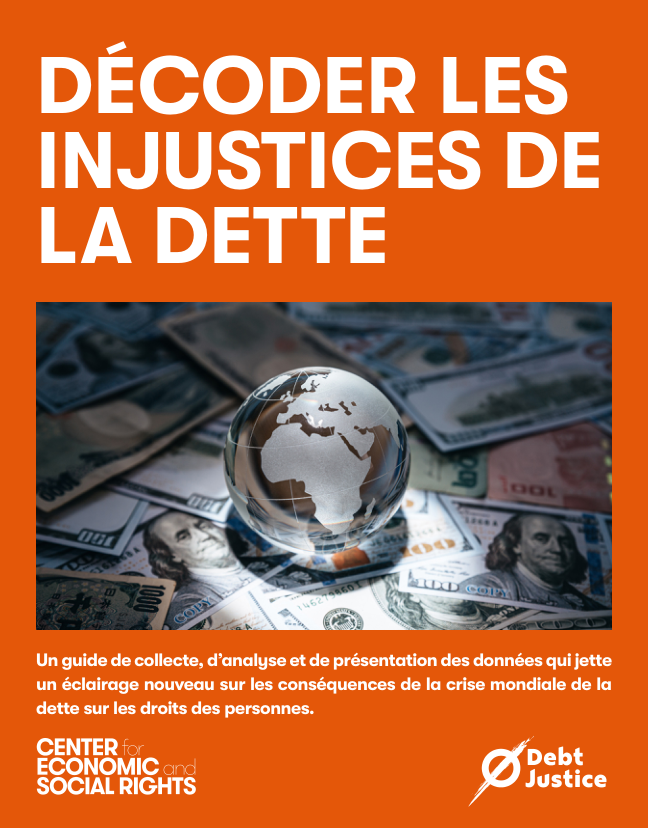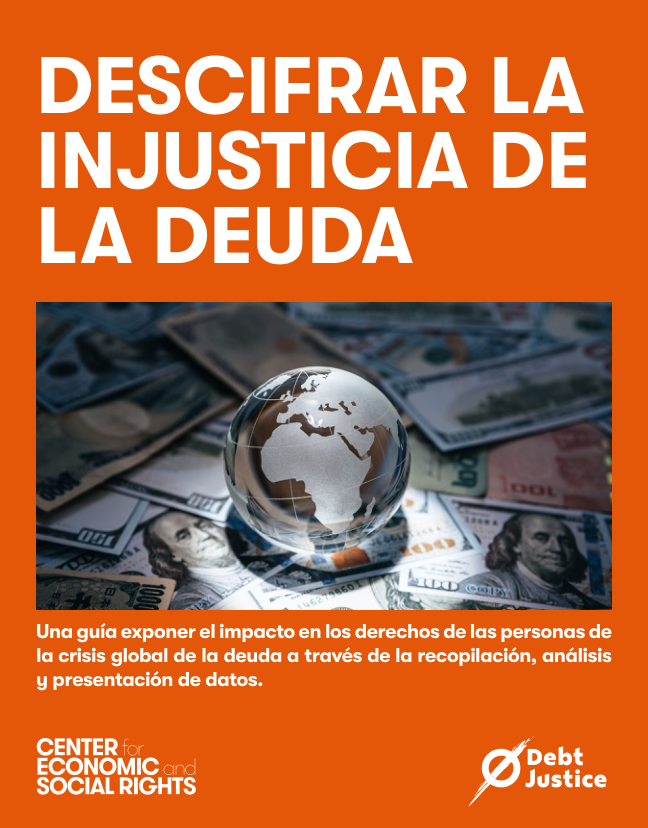This guide sets out how to collect, analyze, and present data, to shed new light on how the global debt crisis impacts people’s rights. Co-published with Debt Justice, it is for anyone who wants to understand — and take action to tackle — the true social costs of these seemingly technical decisions.
Debt has traditionally been seen as a public finance issue. The “sustainability” of a country’s debt has been looked at solely from the perspective of whether or not a government will be able to keep paying its creditors. Missing from the equation? How debt affects the country’s population.
Decoding Debt Injustice is for anyone looking to bring a human rights lens to their research on debt. Whether you are researching a specific loan or restructuring agreement, or investigating how a country’s debt problem is affecting particular rights for distinct groups, this guide will be helpful to you.
In the guide, you’ll learn more about Decoding Injustice, and how to apply each of its three steps to the specific issue of debt:
-
Section 1 looks at how to “interrogate” the problem. It introduces key elements in the global debt system and take stock of trends shaping how they interact. We also discuss framing —and measuring—these trends through a human rights lens and introduce tools needed to do so. This includes incorporating indicators and benchmarks on debt into the ‘OPERA’ framework.
-
Section 2 introduces data that can help “illuminate” the problem. It gives an overview of the different sources of debt data and some of the specific terminology to help you find what you’re looking for. We also offer some pointers for activists looking to analyze data themselves, or to collaborate with economists, statisticians, and others to do this analysis.
-
Section 3 considers how to use evidence to “inspire” action. It outlines various reforms that can address heavy debt burdens, as well as the different channels for advancing them.
Feedback
We’d love to hear your thoughts! If you have any questions or comments about Decoding Debt Injustice, please email us.




